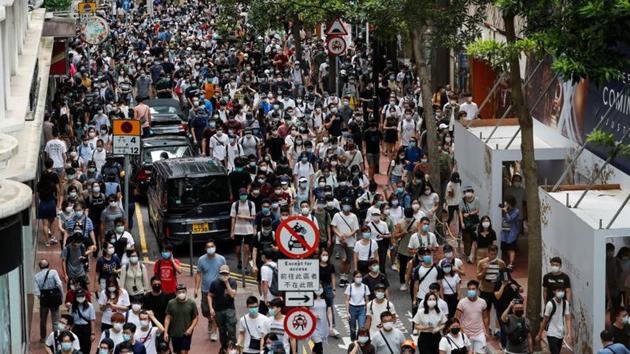Canada suspends extradition treaty with Hong Kong over new security law
Justin Trudeau said that Canada is “a firm believer” in the ‘one country, two systems’ framework that applied to Hong Kong after its handover to China by the British.
Canada has suspended its extradition treaty with Hong Kong, as part of a series of measures precipitated by the enactment of a national security law by China that threatens the autonomy of the city-territory.

During a press conference in Gatineau, Quebec, Canadian Prime Minister Justin Trudeau also announced that “effective immediately” Canada will prohibit the sale of sensitive military items to Hong Kong. Till date, ties between Canada and Hong Kong were treated separately from those with China, but that has changed with the passage of the controversial legislation by the Standing Committee of the National People’s Congress of China. Concerns in Ottawa have also heightened because nearly 300,000 Canadians live in Hong Kong.
Trudeau said that Canada is “a firm believer” in the ‘one country, two systems’ framework that applied to Hong Kong after its handover to China by the British.
Canada expressed its “serious concern” over the passage of the national security law that will sabotage Hong Kong’s democratic tradition. It also issued a new travel advisory for Hong Kong which said that Canadians going there “may be at increased risk of arbitrary detention on national security grounds and possible extradition to mainland China.”
In a statement, Honourable François-Philippe Champagne, Canada’s Minister of Foreign Affairs, criticized the move by Beijing, as he said, “This legislation was enacted in a secretive process, without the participation of Hong Kong’s legislature, judiciary or people, and in violation of international obligations.
This process demonstrated disregard for Hong Kong’s Basic Law and the high degree of autonomy promised for Hong Kong under the ‘one country, two systems’ framework. Hong Kong’s role as a global hub was built on that foundation. Without it, Canada is forced to reassess existing arrangements.”
The suspension of the extradition pact and imports of military equipment are among the initial changes. Canada is also contemplating steps related to immigration for impacted Hong Kongers.
Relations between Canada and China are already at their worst in decades, after Beijing arbitrarily arrested two Canadians, including a diplomat, days after the detention of senior Huawei executive Meng Wanzhou in Vancouver, where is facing trial that could lead to extradition to the United States in a case related to defrauding a bank to bypass sanctions against the Iranian regime. The two Canadians were recently charged with spying, and Ottawa has accused Beijing of using them for ‘hostage diplomacy.’






